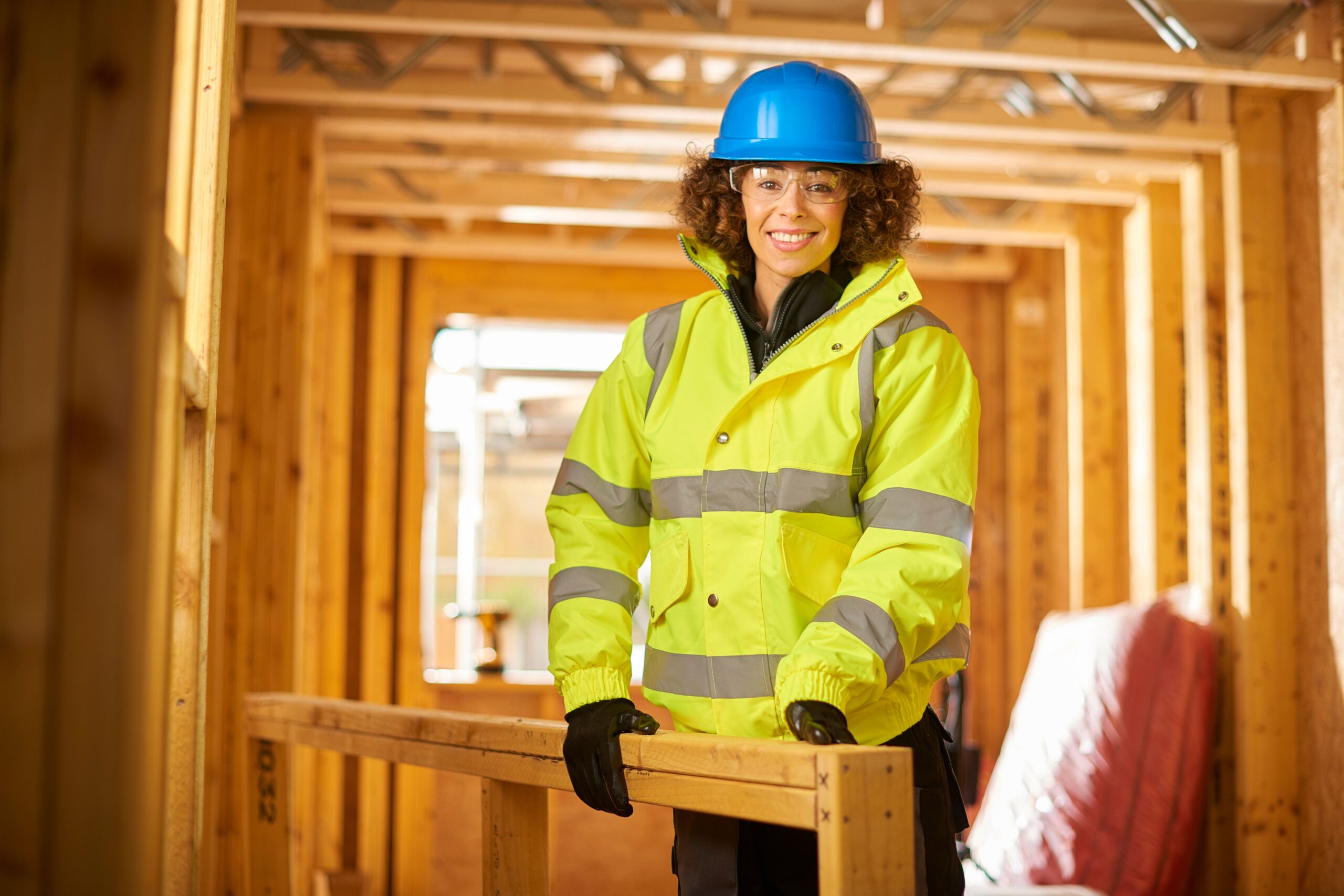Seeking mortgage advice in Cookstown for your unique home-building project? Traditional mortgages might not be the best fit if you’re looking to construct your own house rather than purchasing a pre-built one.
Once you’ve secured (or already possess) a plot of land and obtained the necessary planning permission for your house construction, it’s likely that you’ll need to fund your endeavour through a self-build mortgage.
What is a self-build mortgage and how does it work?
Most mortgage types provide the full loan amount upfront, which is typically used to pay for an existing property. However, a self-build mortgage operates differently due to the nature of the construction process.
In a self-build scenario, the lender’s primary security, a completed house, isn’t yet available. Disbursing the entire loan amount at once would present a significant risk to the lender.
Therefore, self-build mortgages are structured to release funds in stages, corresponding with different phases of the construction process. This staged funding approach ensures that each construction phase is financially supported as it occurs.
Some self-build mortgages offer advance stage payments, where you receive funds for a construction phase before it begins (like getting money for the foundations before they are laid). Others operate on an arrears basis, where you finance each stage yourself and then get reimbursed once the stage is complete.
It’s important to note that these arrangements can vary significantly among lenders and specific mortgage deals. So, it’s crucial to choose a mortgage that aligns with your financial situation and construction plan. Contact our team for mortgage advice in Cookstown for more information.
Types of self-build mortgages
In the realm of self-build mortgages, there are two primary types: advance and arrears. Both are tailored to the unique financial needs of building a home from the ground up.
Advance Self-Build Mortgages:
- In this arrangement, the lender disburses payments at the start of each construction phase. This is crucial for covering immediate expenses like materials, labour, and potentially the purchase of the plot if it’s not already owned.
- If your available funds are limited to just the deposit, an advance mortgage ensures a steady cash flow, essential for keeping the project on track.
- Typically, lenders reserve around 10% of the total loan amount until the house receives a completion certificate, as a measure of security.
Arrears Self-Build Mortgages:
- Here, funds are released upon the completion of each construction stage.
- This approach requires you to finance the upfront costs for materials and labor until the lender confirms the completion of each stage.
- Arrears self-build mortgages are more commonly offered by lenders, but they necessitate that you have the financial means to cover each stage of construction until the mortgage payment is received.
- For those lacking immediate savings, bridging loans can be a viable option to front these costs, which can then be repaid once the mortgage funds are released.
- Both types of self-build mortgages have their advantages and challenges, and the choice largely depends on your financial situation and how you plan to manage the cash flow throughout the construction process.
What are the benefits of a self-build mortgage?
Building your own home can offer significant financial advantages, especially if you already possess land and have secured planning permission.
One of the key benefits is the exemption from stamp duty on the building work and the value of the completed house. This exemption means you only need to pay stamp duty on the land value, provided it exceeds £125,000. This amount is often considerably less than what the completed property would be worth.
Additionally, barring any unforeseen complications, the total cost of constructing your home is frequently lower than the price you would pay for a pre-existing house. This cost-effectiveness can result in substantial savings, making self-building an attractive option for many.
What happens if my self-build costs are higher than the funds issued in that stage of the mortgage?
In self-build projects, it’s not uncommon for costs to exceed initial estimates despite thorough planning. This situation can be challenging, especially if the costs overrun the funds allocated for a particular stage of the mortgage. Here are some ways to manage this scenario:
- Insurance: It’s wise to consider insurance policies that cover extended delays, cost overruns, as well as risks like theft, vandalism, and weather-related damages. This insurance can provide a financial safety net in case of unexpected issues.
- Requesting Additional Funds: If you find yourself needing more money to complete a stage, you might approach your self-build mortgage provider for additional funds. However, this solution has a significant drawback; releasing more funds earlier means there will be less money available for later stages of your project. This could lead to financial constraints as the project progresses.
- Bridging Loans: Another option is to take out a bridging loan. Bridging loans are short-term financing solutions designed to ‘bridge’ the gap in funding, allowing you to continue with the construction. Once you receive the next instalment of your mortgage or complete the project, you can repay the bridging loan.
Each of these options has its considerations and impacts, and the best choice depends on your specific financial situation and the stage of your building project. Before finalising your home construction plans, it’s advisable to seek comprehensive mortgage advice in Cookstown to ensure your financial readiness. It’s crucial to carefully evaluate these options and possibly consult with a financial advisor to determine the most suitable approach for managing cost overruns in your self-build project.
Who can get a self-build mortgage?
Before starting the process of securing a self-build mortgage, it’s essential to ensure that your project meets the qualifying criteria set by lenders. These requirements can vary, but there are some common factors that most lenders consider:
- Purpose of the Completed House: Lenders typically specify the intended use of the completed house, whether it be for residential or commercial purposes. This is a key factor in their decision-making process.
- First-Time Builders: It’s possible for first-time builders to obtain a self-build mortgage. However, having a substantial deposit, typically between 25% to 40%, is often necessary. This larger deposit demonstrates to the lender your commitment and financial stability. For first-time buyers in the area, obtaining expert mortgage advice in Cookstown is crucial to understand the various financing options available.
- Credit History and Income: A good credit history and proof of a reliable income are crucial. These factors assure the lender of your ability to meet the mortgage repayments.
- Lender’s Caution with Self-Build Projects: Given the unique risks associated with self-build projects, lenders tend to be more cautious. This is due to the potential for cost overruns, delays, and other unforeseen issues that can arise during construction.
- Benefits of a Mortgage Broker: enlisting the help of an expert mortgage broker such as one of our team in Cookstown can be extremely beneficial. A broker with experience in self-build mortgages can guide you through the complex process, help you find a suitable lender, and ensure that your project meets all necessary requirements.
Overall, while obtaining a self-build mortgage can be more challenging than a standard mortgage, proper planning, a strong financial foundation, and professional guidance can significantly increase your chances of success. This is where The Mortgage Clinic comes in, if you are looking for mortgage advice in Cookstown please get in contact with our team who will gladly help you with your self-build efforts.

